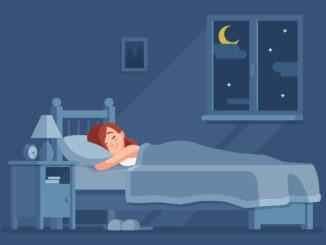
In today’s fast-paced world, bedtime rituals have undergone a curious shift, particularly among the younger demographic. The once-dismissed notion of hitting the hay at 9pm is gaining traction, sparking intrigue and debate about its implications for sleep habits and overall well-being
CREDIT: This is an edited version of an article that originally appeared on The Guardian
Surprisingly, data suggests that many twentysomethings are bidding farewell to late-night activities in favour of an early bedtime. According to a recent analysis, the average sleep duration among Americans in their 20s has increased significantly over the past decade, with many now clocking in nearly nine and a half hours of sleep per night.
Personal choices
While some individuals embrace the 9pm bedtime as a conscious decision to prioritise rest and rejuvenation, others view it as a departure from societal norms. Personal anecdotes shed light on diverse perspectives, with some attributing their early bedtime to a desire for peace and quiet, while others cite the benefits of aligning with their natural sleep rhythms.
Navigating lifestyle challenges
However, adopting a 9pm bedtime is not without its challenges. Social obligations, work commitments, and lifestyle preferences often collide with the allure of an early lights-out. Finding a balance between personal wellness and societal expectations remains a constant struggle for many, raising questions about the feasibility of sustaining this trend in the long run.
Insights from sleep science
Delving deeper, experts highlight the role of genetics and age in shaping individual sleep patterns. While some individuals naturally gravitate towards early bedtimes, others thrive on nocturnal activities. Understanding these inherent differences is crucial in tailoring sleep routines to suit individual needs and preferences.
The quest for balance
As the debate continues, one thing remains clear: achieving quality sleep requires a delicate balance between routine and flexibility. While the allure of a 9pm bedtime may appeal to some, others find solace in embracing their unique sleep patterns. Ultimately, finding harmony between rest and productivity is key to a well-rounded approach to sleep hygiene in today’s dynamic world.
Whether you’re a night owl or an early bird, the concept of a 9pm bedtime invites reflection on the evolving nature of sleep habits in modern society. As individuals navigate the complexities of daily life, striking a balance between rest and activity is essential for optimal well-being. Perhaps the true essence of a good night’s sleep lies not in the hour we retire to bed, but in the quality of rest we ultimately achieve.



Be the first to comment